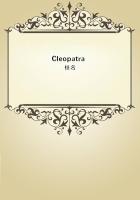According to him, suppers produced gout in the rich: he boasted that he had nimble feet, because his shoemaker gave him boots that do not pinch his corns. There were aching heads beneath diadems, but his never ached, because it was touched neither by luxury nor any other chaplet. And again, that jewelled rings hinder the circulation of the blood. Although he covered himself with sores, after the manner of cadgers, you may be sure he was as sound as a child at the baptismal font.
The good man disported himself with other rogues, playing with his three dice, which he kept to remind him to spend his coppers, in order that he might always be poor. In spite of his vow, he was, like all the order of mendicants, so wealthy that one day at the Paschal feast, another beggar wishing to rent his profit from him, Vieux par-Chemins refused ten crowns for it; in fact, the same evening he spent fourteen crowns in drinking the health of the alms-givers, because it is the statutes of beggary that one should show one's gratitude to donors.
Although he carefully got rid of that of which had been a source of anxiety to others, who, having too much wealth went in search of poverty, he was happier with nothing in the world than when he had his father's money. And seeing what are the conditions of nobility, he was always on the high road to it, because he did nothing except according to his fancy, and lived nobly without labour. Thirty crowns would not have got him out of a bed when he was in it. The morrow always dawned for him as it did for others, while leading this happy life; which, according to the statements of Plato, whose authority has more than once been invoked in these narratives, certain ancient sages had led before him. At last, Vieux par-Chemins reached the age of eighty-two years, having never been a single day without picking up money, and possessed the healthiest colour and complexion imaginable. He believed that if he had persevered in the race for wealth he would have been spoiled and buried years before. It is possible he was right.
In his early youth Vieux par-Chemins had the illustrious virtue of being very partial to the ladies; and his abundance of love was, it is said, the result of his studies among the sparrows. Thus it was that he was always ready to give the ladies his assistance in counting the joists, and this generosity finds its physical cause in the fact that, having nothing to do, he was always ready to do something. His secret virtues brought about, it is said, that popularity which he enjoyed in the provinces. Certain people say that the lady of Chaumont had him in her castle, to learn the truth about these qualities, and kept him there for a week, to prevent him begging. But the good man jumped over the hedges and fled in great terror of being rich. Advancing in age, this great quintessencer found himself disdained, although his notable faculties of loving were in no way impaired. This unjust turning away on the part of the female tribe caused the first trouble of Vieux par-Chemins, and the celebrated trial of Rouen, to which it is time I came.
In this eighty-second year of his age he was compelled to remain continent for about seven months, during which time he met no woman kindly disposed towards him; and he declared before the judge that that had caused the greatest astonishment of his long and honourable life. In this most pitiable state he saw in the fields during the merry month of May a girl, who by chance was a maiden, and minding cows. The heat was so excessive that this cowherdess had stretched herself beneath the shadow of a beech tree, her face to the ground, after the custom of people who labour in the fields, in order to get a little nap while her animals were grazing. She was awakened by the deed of the old man, who had stolen from her that which a poor girl could only lose once. Finding herself ruined without receiving from the process either knowledge or pleasure, she cried out so loudly that the people working in the fields ran to her, and were called upon by her as witnesses, at the time when that destruction was visible in her which is appropriate only to a bridal night. She cried and groaned, saying that the old ape might just as well have played his tricks on her mother, who would have said nothing.
He made answer to the peasants, who had already raised their hoes to kill him, that he had been compelled to enjoy himself. These people objected that a man can enjoy himself very well without enjoying a maiden--a case for the provost, which would bring him straight to the gallows; and he was taken with great clamour to the jail of Rouen.
The girl, interrogated by the provost, declared that she was sleeping in order to do something, and that she thought she was dreaming of her lover, with whom she was then at loggerheads, because before marriage he wished to take certain liberties: and jokingly, in this dream she let him reconnoiter to a certain extent, in order to avoid any dispute afterwards, and that in spite of her prohibitions he went further than she had given him leave to go, and finding more pain than pleasure in the affair, she had been awakened by Vieux par-Chemins, who had attacked her as a gray-friar would a ham at the end of lent.















